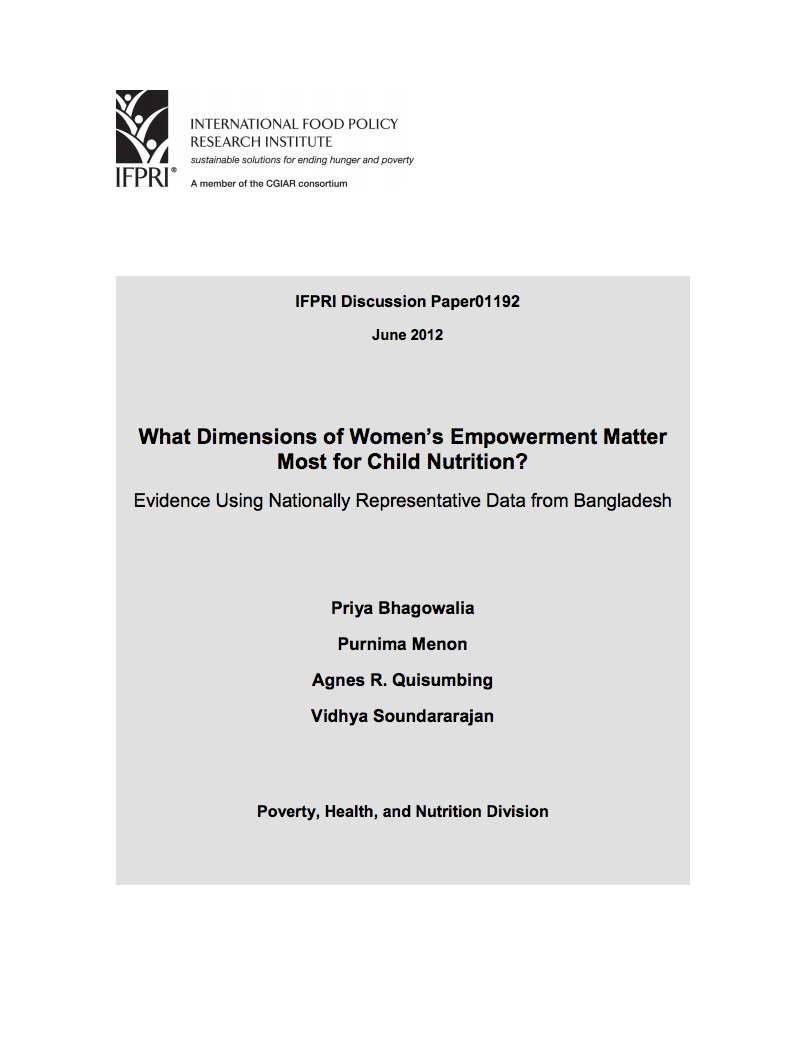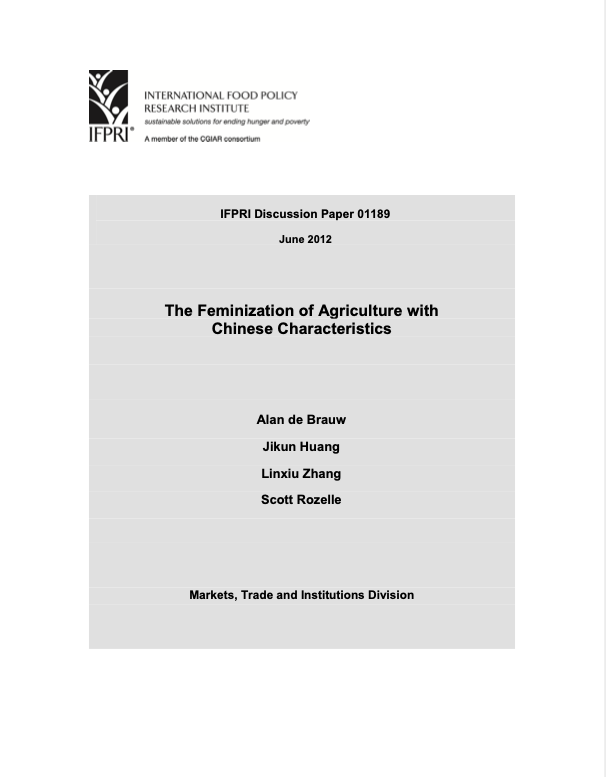Focal point
Location
About IFPRI
The International Food Policy Research Institute (IFPRI) provides research-based policy solutions to sustainably reduce poverty and end hunger and malnutrition in developing countries. Established in 1975, IFPRI currently has more than 500 employees working in over 50 countries. It is a research center of theCGIAR Consortium, a worldwide partnership engaged in agricultural research for development.
Vision and Mission
IFPRI’s vision is a world free of hunger and malnutrition. Its mission is to provide research-based policy solutions that sustainably reduce poverty and end hunger and malnutrition.
What We Do
Research at IFPRI focuses on six strategic areas:
- Ensuring Sustainable Food Production: IFPRI’s research analyzes options for policies, institutions, innovations, and technologies that can advance sustainable food production in a context of resource scarcity, threats to biodiversity, and climate change. READ MORE
- Promoting Healthy Food Systems: IFPRI examines how to improve diet quality and nutrition for the poor, focusing particularly on women and children, and works to create synergies among the three vital components of the food system: agriculture, health, and nutrition. READ MORE
- Improving Markets and Trade: IFPRI’s research focuses on strengthening markets and correcting market failures to enhance the benefits from market participation for small-scale farmers. READ MORE
- Transforming Agriculture: The aim of IFPRI’s research in this area is to improve development strategies to ensure broad-based rural growth and to accelerate the transformation from low-income, rural, agriculture-based economies to high-income, more urbanized, and industrial service-based ones. READ MORE
- Building Resilience: IFPRI’s research explores the causes and impacts of environmental, political, and economic shocks that can affect food security, nutrition, health, and well-being and evaluates interventions designed to enhance resilience at various levels. READ MORE
- Strengthening Institutions and Governance: IFPRI’s research on institutions centers on collective action in management of natural resources and farmer organizations. Its governance-focused research examines the political economy of agricultural policymaking, the degree of state capacity and political will required for achieving economic transformation, and the impacts of different governance arrangements.
Research on gender cuts across all six areas, because understanding the relationships between women and men can illuminate the pathway to sustainable and inclusive economic development.
IFPRI also leads two CGIAR Research Programs (CRPs): Policies, Institutions, and Markets (PIM) andAgriculture for Nutrition and Health (A4NH).
Beyond research, IFPRI’s work includes partnerships, communications, and capacity strengthening. The Institute collaborates with development implementers, public institutions, the private sector, farmers’ organizations, and other partners around the world.
Resources
Displaying 576 - 580 of 1521What Dimensions of Women’s Empowerment Matter Most for Child Nutrition?
We use data from the 2007 Bangladesh Demographic and Health Survey to examine the relationship between women’s status and nutrition in Bangladesh using indicators of empowerment such as mobility, decisionmaking power, and attitudes toward verbal and physical abuse. We also examine the role of variables reflecting maternal education and height, in relation to child nutrition. All models control for age and sex of the child, household wealth, and region.
The Feminization of Agriculture with Chinese Characteristics
The objectives of this paper are to help build a picture of the role of women in China’s agriculture, to assess whether or not agricultural feminization has been occurring, and if so, to measure its impact on productivity. To meet these goals, we rely on three datasets that allow us to explore who is working on China’s farms and the effects of the labor allocation decisions of rural households on productivity. We find that since 2000, the role of women has increased both in the supply of farm labor and in the duties that women take on in the management of farms.
2012 Indice globale della fame
Nelle ultime due edizioni l’IndiceGlobale della Fame (Global Hunger Index - GHI) aveva approfondito temi che sono tuttora di grande attualità: la denutrizione infantile e la volatilità dei prezzi dei beni alimentari. Gran parte dell’Asia negli ultimi anni ha visto il PIL di diversi Paesi crescere con tassi superiori al 7%, ma la maggiore ricchezza non si è sempre tradotta in unmiglior accesso a un’alimentazione di qualità.
Enhancing resilience in the Horn of Africa: an exploration into alternative investment options
This discussion paper seeks to explore alternative investment options with the aim of enhancing resilience in the Horn of Africa. Climate change, conflict, drought and increasing populations are leading many to pessimistic conclusions regarding the future viability of pastoral farming, arguing that these livelihoods should be sedentarised and diversified. Simultaneously, others argue for their wholesale protection.
Land institutions, investments, and income diversification: Pathways to economic development for Brazil’s quilombo communities
Efforts to distribute land titles to low-income rural Afro-Brazilian communities, known as quilombos, have been disappointing despite the provision of ample government resources. Until now, research on the implications of Brazil s land reform policies has not considered quilombo communities in an economic context. The unique case of the quilombo communities provides an interesting context to advance the understanding of the role of land titles in rural income generation.







